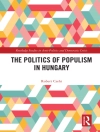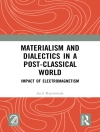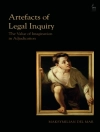How much does rationality constrain what we should believe on the basis of our evidence? According to this book, not very much. For most people and most bodies of evidence, there is a wide range of beliefs that rationality permits them to have in response to that evidence. The argument, which takes inspiration from William James’ ideas in ‘The Will to Believe’, proceeds from two premises. The first is a theory about the basis of epistemic rationality. It’s called epistemic utility theory, and it says that what it is epistemically rational for you to believe is what it would be rational for you to choose if you were given the chance to pick your beliefs and, when picking them, you were to care only about their epistemic value. So, to say which beliefs are permitted, we must say how to measure epistemic value, and which decision rule to use when picking your beliefs. The second premise is a claim about attitudes to epistemic risk, and it says that rationality permits many different such attitudes. These attitudes can show up in epistemic utility theory in two ways: in the way you measure epistemic value; and in the decision rule you use to pick beliefs. This book explores the latter. The result is permissivism about epistemic rationality: different attitudes to epistemic risk lead to different choices of prior beliefs; given most bodies of evidence, different priors lead to different posteriors; and even once we fix your attitudes to epistemic risk, if they are at all risk-inclined, there is a range of different priors and therefore different posteriors they permit.
Richard Pettigrew
Epistemic Risk and the Demands of Rationality [EPUB ebook]
Epistemic Risk and the Demands of Rationality [EPUB ebook]
Beli ebook ini dan dapatkan 1 lagi GRATIS!
Bahasa Inggris ● Format EPUB ● Halaman 240 ● ISBN 9780192679451 ● Penerbit OUP Oxford ● Diterbitkan 2022 ● Diunduh 3 kali ● Mata uang EUR ● ID 8481121 ● Perlindungan salinan Adobe DRM
Membutuhkan pembaca ebook yang mampu DRM












